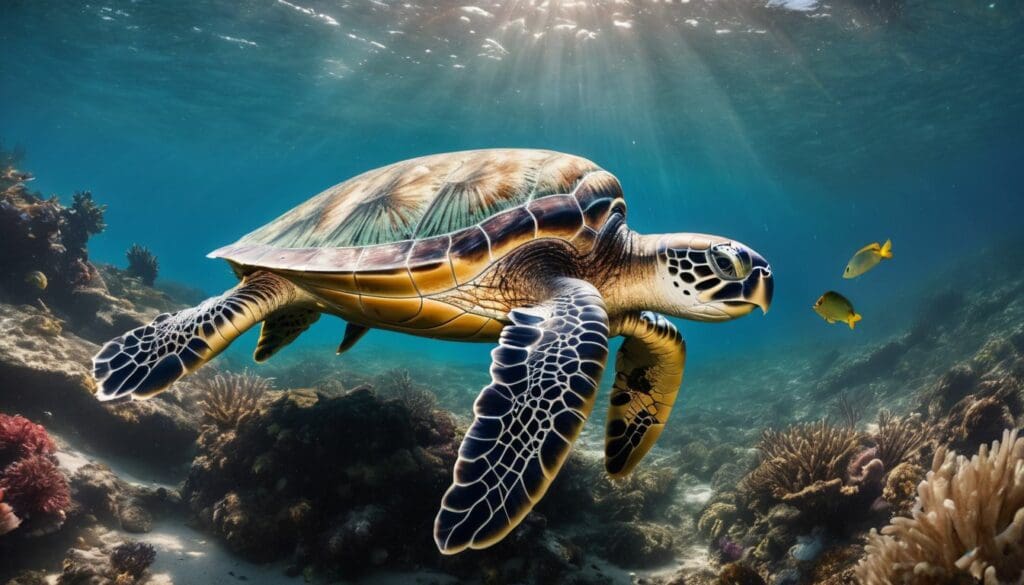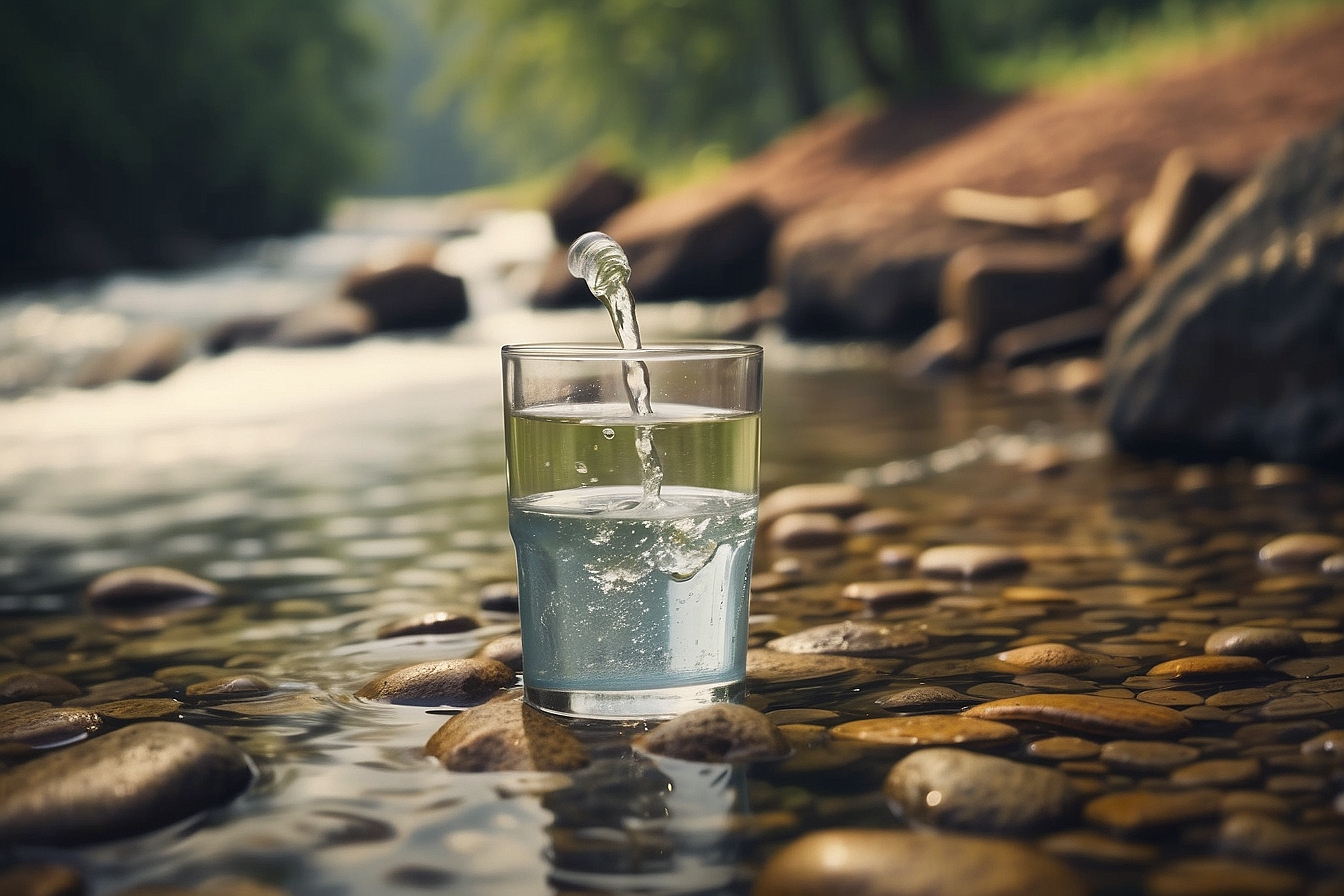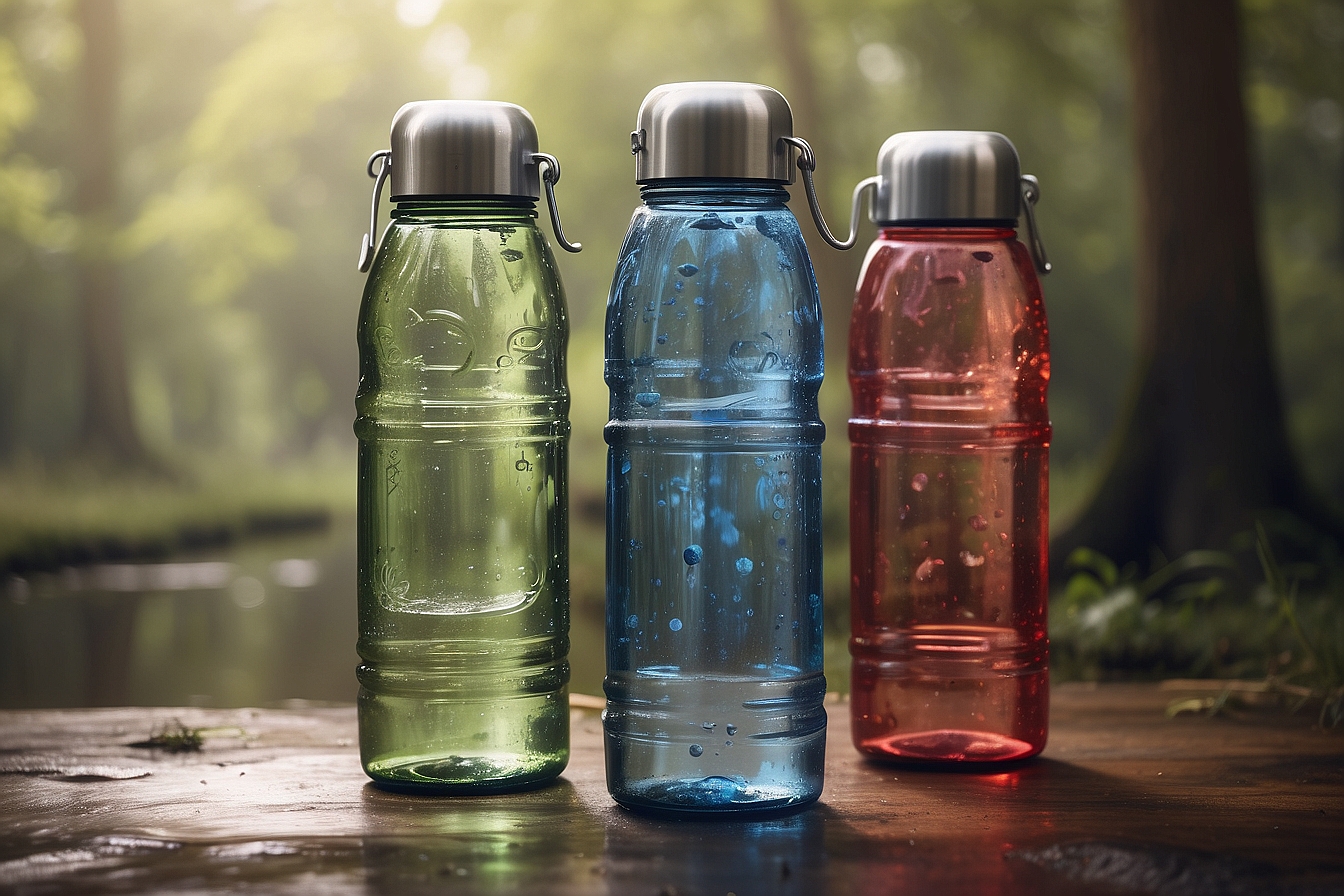We’re all familiar with the distressing sight of our beloved beaches marred by plastic debris, an all-too-revealing sign of the repercussions our everyday actions have on the marine world.
Like you, we’ve gazed out upon the shore, hearts heavy with concern for this escalating environmental emergency. With stark statistics in hand—such as the staggering 8 million tonnes of plastic that find their way into our oceans annually—we plunged headfirst into seeking viable solutions.
Our article delineates tangible steps each one of us can embrace to help stem the flow of plastics into our precious seas. Keep reading and become part of a collective effort to create ripples—and ultimately waves—of positive change.
Key Takeaways
- Plastic pollution is a critical issue, with our oceans receiving roughly 8 million tonnes of plastic waste each year, affecting over 800 marine species through ingestion and entanglement.
- Main sources include land – based activities, industrial runoffs, coastal tourism, and riverine inputs that carry litter from inland to the sea.
- The economic impact of plastic in oceans is profound; it leads to billions lost in tourism and fisheries, and communities face high cleanup costs.
- To combat this crisis, individuals can switch to reusable items and partake in clean – up efforts while governments must enforce stricter waste management policies.
- Reducing plastic use aids in tackling climate change as the breakdown of plastics releases greenhouse gases contributing to global warming.
What is Plastic Pollution?
Plastic pollution refers to the accumulation of plastic waste in the ocean, posing a serious threat to marine life and ecosystems. This type of pollution includes single-use plastics, microplastics, and larger debris that can harm marine animals and degrade water quality.
Definition
Plastic pollution refers to the accumulation of plastic products in the Earth’s environment that adversely affects wildlife, wildlife habitat, and humans. These synthetic materials can take hundreds of years to break down, leading to long-term damage in our oceans.
As we dump these persistent pollutants into our seas, they wreak havoc on marine biodiversity.
Our planet’s waters are currently facing a deluge of plastic waste ranging from large debris to invisible microplastics. When considering ocean health, it becomes clear that marine debris is not just an unsightly problem; it represents a serious environmental hazard with far-reaching impacts.
This menace undermines the very fabric of marine ecosystems and threatens the wellbeing and survival of countless species.
How it affects the oceans
Plastic pollution significantly impacts the oceans, posing a grave threat to marine life and ecosystems. Marine animals often mistake plastic debris for food, leading to ingestion and entanglement, causing injuries and fatalities.
This disrupts the delicate balance of ocean ecosystems and jeopardises biodiversity. Additionally, plastic waste can release toxic chemicals into the water, altering its composition and harming marine habitats.
The accumulation of plastic in oceans also leads to physical damage on coral reefs, seagrass beds, and other crucial habitats – exacerbating coastal pollution.
Furthermore, plastic pollution contributes to environmental hazards such as habitat degradation, hindered reproduction in aquatic species, and reduced fishery yield due to contamination.
The Scale of the Problem
Plastic pollution in oceans is a global crisis, with an estimated 8 million metric tons of plastic entering the ocean every year. The sources of this pollution include littering, inadequate waste management systems, and industrial activities.
Statistics and data
Recognising the magnitude of plastic pollution is essential for understanding its impact on our oceans. Here’s a summary of key statistics and data presented in a comprehensive table:
| Statistic/Data Point | Details |
|---|---|
| Annual Plastic Production | Approximately 368 million tonnes globally in 2019 |
| Plastics Entering Oceans Each Year | Estimated 8 million tonnes |
| Largest Source of Ocean Plastic | Rivers contribute about 80% of plastics to the marine environment |
| Microplastics in Oceans | Over 5 trillion pieces floating on the surface |
| Impact on Marine Life | Over 800 species affected by plastic pollution through ingestion or entanglement |
| Economic Impact on Coastal Communities | Billions of pounds lost annually in tourism, fisheries, and clean-up costs |
| Recycling Rate | Less than 9% of all plastics produced have been recycled |
We must digest these figures to grasp the gravity of the situation fully. They depict a crisis that affects countless species, including our own, and signal an urgent need for action.
Sources of plastic pollution
After examining the statistics and data, it is important to understand the various sources of plastic pollution that contribute to the dire environmental impact. These sources include:
- Land-based sources: Urban runoff, industrial activities, and inadequate waste management systems contribute significantly to plastic pollution in oceans.
- Riverine inputs: The litter and plastic waste carried by rivers from inland areas into the oceans represent a major source of marine plastic pollution.
- Coastal tourism: The tourism industry generates substantial amounts of single-use plastics, further exacerbating ocean pollution.
- Shipping and fishing activities: Discarded fishing gear, cargo spills, and irresponsible waste disposal from maritime industries all contribute to plastic debris in the oceans.
- Offshore oil and gas platforms: These facilities can contribute to plastic pollution through their operational and maintenance activities.
Consequences of Plastic Pollution in Oceans
The consequences of plastic pollution in oceans are severe and far-reaching. From harm to wildlife and marine ecosystems, to the impact on human health, climate change, and the economy – the consequences are detrimental.
Harm to wildlife
Plastic pollution in oceans poses a significant threat to marine wildlife. Creatures like sea turtles, seabirds, and fish often mistake plastic debris for food, leading to ingestion and resulting in internal injuries or death.
Additionally, animals can become entangled in plastic waste, causing suffocation, injury, or reduced mobility. The presence of plastics also disrupts marine ecosystems by altering habitats and impacting the balance of various species within them.
These harmful effects highlight the urgent need for collective action to address plastic pollution and safeguard our ocean’s biodiversity.
Harm to humans
Plastic pollution in oceans poses a significant threat to human health. The presence of plastic waste in marine ecosystems leads to the ingestion of harmful toxins by marine life, which can then be transmitted through the food chain to humans.
This contamination can result in serious health issues for individuals consuming seafood from polluted waters, including potential risks of exposure to carcinogens and endocrine disruptors.
Furthermore, direct contact with plastic debris during recreational activities such as swimming or beachcombing can lead to physical injuries and infections. In addition, microplastics have been found in drinking water sources, raising concerns about the potential long-term effects on human health due to regular consumption of contaminated water.
Impact on climate change
Continuing from the harmful impact that plastic pollution has on humans, it is crucial to understand the significant effect it has on climate change. The release of greenhouse gases during the production, use, and disposal of plastics contributes to global warming and ocean acidification.
As plastic waste breaks down into smaller particles, they release greenhouse gases such as methane and ethylene when exposed to sunlight. These gases contribute to the warming of our planet and exacerbate climate change.
Furthermore, the manufacturing process of plastics involves fossil fuels, which are a major contributor to climate change. The extraction and burning of these fuels for plastic production releases carbon dioxide into the atmosphere.
Economic effects
Plastic pollution in oceans has significant economic effects, impacting industries such as tourism and fishing. The presence of plastic waste diminishes the appeal of coastal areas, leading to a decline in tourism revenue and affecting local businesses.
Furthermore, marine plastic pollution can harm fisheries by damaging equipment and lowering catch rates, resulting in financial losses for those dependent on fishing for their livelihoods.
Cleanup efforts also incur substantial costs, diverting resources that could be used for other beneficial environmental initiatives.
Preventing Plastic Pollution
Taking proactive measures is crucial to prevent plastic pollution in oceans. By making conscious choices and reducing the use of single-use plastics, individuals can play a significant role in protecting marine ecosystems.
Government and industry also have a responsibility to implement policies that promote sustainable alternatives and reduce plastic waste. Learn more about the steps we can take to address this global threat by reading on.
Importance of prevention
Preventing plastic pollution in oceans is crucial for safeguarding marine life and preserving the health of our planet. Taking action to reduce single-use plastics and promoting sustainable alternatives are essential steps towards mitigating the harmful impact of plastic waste on marine ecosystems.
It’s vital for individuals, governments, and industries to collaborate on implementing measures that effectively address plastic pollution in oceans, as it directly affects the well-being of ocean biodiversity.
Encouraging responsible consumption habits and supporting initiatives aimed at reducing plastic waste can significantly contribute to tackling this global concern. By prioritising prevention strategies, we can work towards creating a healthier environment for current and future generations, where marine life thrives free from the dangers posed by plastic pollution in our oceans.
Steps individuals can take
We can start by reducing our use of single-use plastics, such as straws, bags, and water bottles. Opt for reusable alternatives like metal straws, cloth bags, and refillable water bottles. Properly dispose of plastic waste by recycling and participating in beach or ocean clean-up initiatives. Support policies and businesses that promote sustainable packaging and eco-friendly practices. Educate ourselves and others about the impact of plastic pollution on oceans and marine life. Encourage community involvement in local conservation efforts to reduce plastic pollution in oceans.
Government and industry responsibility
Government and industry must enforce strict regulations to reduce plastic pollution in oceans. They should implement policies that limit single-use plastics and promote sustainable alternatives.
Additionally, they can invest in research and development of biodegradable materials to replace traditional plastics, collaborating with scientists and innovators to find effective solutions.
Moreover, industries need to take responsibility for their waste management practices by implementing recycling programs within their facilities. Governments can also provide incentives for companies that adopt eco-friendly practices while imposing penalties on those who continue to pollute the oceans with plastic waste.
Together, we can hold them accountable for protecting our planet’s marine ecosystems from the harmful effects of plastic pollution.
Conclusion
In conclusion, the threat of plastic pollution in our oceans is a global concern. It requires collective action from individuals, governments, and industries to address this issue and promote ocean conservation and literacy.
Join us in taking steps to reduce plastic pollution and protect our marine ecosystems for future generations.
The need for collective action
To address plastic pollution in the oceans, we must work together. Individuals, governments, and industries all have a role to play in reducing plastic waste. By raising awareness and promoting sustainable alternatives to single-use plastics, we can actively contribute to protecting marine ecosystems.
It is crucial that we advocate for stricter regulations on plastic production and disposal to prevent further harm to our oceans’ biodiversity.
We need everyone’s commitment and cooperation in finding solutions that will effectively mitigate the threat of plastic pollution. Collective action is essential for combating this global environmental challenge and ensuring the health and sustainability of our oceans for future generations.
Promoting ocean conservation and literacy
We can support ocean conservation by spreading awareness about the detrimental effects of plastic pollution on marine ecosystems. Educating others about the impact of plastic debris on marine life and promoting sustainable practices will help to mitigate this global threat.
By sharing information about the importance of reducing single-use plastics, we can inspire others to take action in their daily lives, contributing to a healthier ocean environment for future generations.
Encouraging literacy on ocean conservation issues is essential for fostering a sense of responsibility towards preserving our oceans. Through accessible educational materials and community initiatives, we can empower individuals to make informed choices that benefit marine biodiversity and ecosystem health.
FAQs
1. What is plastic pollution in oceans?
Plastic pollution in oceans refers to the accumulation of plastic waste that causes ecosystem degradation and poses a global threat to marine life.
2. How does plastic waste affect marine ecosystems?
Plastic waste harms marine ecosystems by causing environmental impact such as entangling animals, releasing toxins, and breaking down into microplastics that enter food chains.
3. Why is reducing plastic pollution important for ocean biodiversity?
Reducing plastic pollution is crucial because it prevents danger to ocean biodiversity, including the threats to various species from ingesting or getting trapped in plastic debris.
4. What efforts can we make to address marine pollution caused by plastics?
To mitigate the issue of marine pollution, we can implement measures like limiting single-use plastics, recycling more effectively, and engaging in clean-up efforts.
5. Are there solutions being put forward to tackle the global concern of oceanic plastic pollution?
Yes, governments and organisations around the world are proposing solutions such as stricter regulations on waste management and increased public awareness campaigns to reduce the harmful effects of this global concern.





